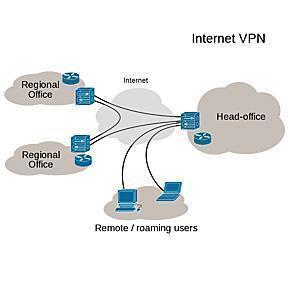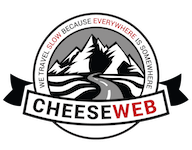
How a VPN works in a business situation
Missing your BBC iPlayer? Can’t access Facebook? Expats and travellers often can’t log on to websites and services they use back home. A Virtual Private Network, or VPN, can help you reach those sites wherever you are in the world.
When you access a website, your computer is identified by an IP address made up of numbers, like 123.45.67.89. This numbering roughly identifies where you are in the world, based on your internet provider. So in Belgium, the IP address would identify if you are a Belgacom, Telenet, Voo, Numericable, or other customer. This information tells a website which country you are surfing from.
A number of websites use your IP address to restrict content to people living in a particular country. This practice has become more frequent since our arrival in Belgium 7 years ago. For instance, music websites, Pandora and Spotify, use this type of restriction because of their license agreements with recording studios. The BBC restricts access to their iPlayer, because the content is owned by the UK license-fee payers.
But what if you’ve paid for the service in your home country but you’re now living abroad or travelling? A Virtual Private Network (VPN) service, like PureVPN, provides you with a workaround.
What is a VPN?
A VPN is most commonly associated with businesses. It allows a computer outside the office, like a laptop, to access resources inside the office securely. Once connected to the VPN, your laptop appears as if it is connected directly to the office. However, a VPN is simply a way to join multiple computers together.
Setting up a VPN is like building a pipe between your computer and another computer somewhere in the world. Consider the pipe analogy: if you open a faucet, the water falls into the sink. The drain catches the water and funnels it into a pipe which then carries the water out of the house.
A VPN is exactly the same (minus the water). It is a pipe between your computer and a second computer. When you are using a VPN, your computer funnels all of your internet traffic into a secure pipeline which passes the information to this second computer. The other computer then forwards your internet traffic to the website.
This is key – the website now believes your location is that of the second computer. Because your internet traffic was sent via the second computer, the IP address seen by the website is the IP of that computer, not yours! Thus if you’re in Belgium and you’re using a VPN to the US, a website restricting content based on US IP addresses will think you’re coming from the US and give you access.
What else can a VPN offer?
Beyond giving you access to content-restricted websites, using a VPN can also provide security. If you use a service which encrypts the connection, as PureVPN does, then the security will also prevent your internet provider from spying on you.
It is also useful if you travel to parts of the Middle East or Asia in which content is restricted. For instance, if you visit China, you’ll need a VPN to be able to gain access to sites like Facebook.
Which VPN Do I Choose?
We’ve been using PureVPN for a few years now. There are many other options out there, but I decided on PureVPN for a few reasons:
- Paid service has money to invest in their business, meaning better connections, faster computers, and more options.
- Many VPN destinations, including Canada, US, and UK.
- Even a particular country may have multiple options, giving you the ability to find one that offers the best performance.
- Secure connections.
- Unrestricted speed (some services throttle your speed based on your plan).
We’ve been happy with the service and support from PureVPN. It was nice to be able to watch the Olympics with familiar broadcasters and watch ice hockey on occasion since it’s hard to find here in Belgium.
If you’re interested in using a VPN, we’d appreciate you using our PureVPN affiliate link to do so. It helps us keep the lights on around here at CheeseWeb HQ!
Have you experimented with VPN services? Share your recommendations in the comments below.
Looking for more resources for living in Belgium? Check out our Expat Resources page.
- Wise Review: How to Save Money on International Currency Transfers - January 20, 2017
- Our 50+ Best Belgium Gifts Online - November 29, 2016
- Review: Crowne Plaza – Le Palace Hotel and Restaurant, Brussels, Belgium - September 30, 2016

